After AG letter, SPS board puts off vote to revise school lunch anti-discrimination policy
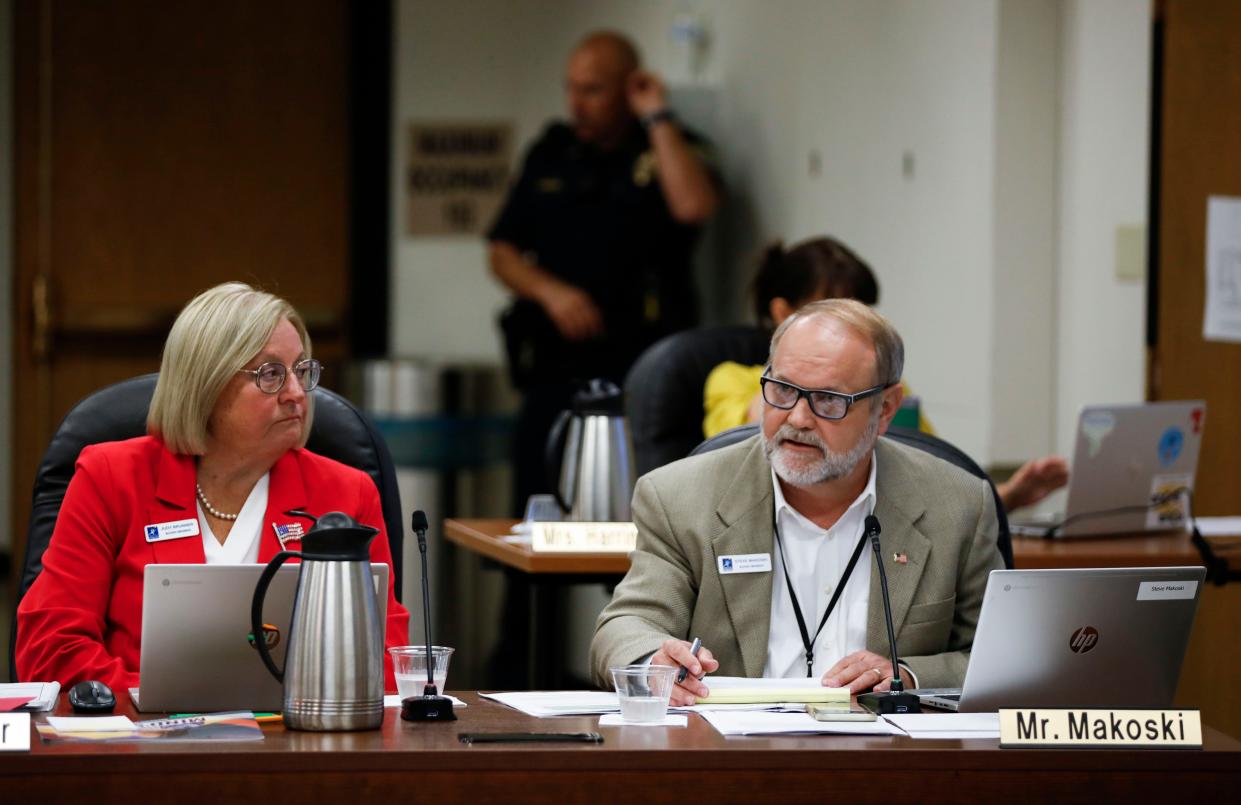
An 11th hour email from the Missouri Attorney General, school board members accusing each other of "playing politics," and talk of morality, chemical castration and God were part of an often fiery debate Tuesday over revising an anti-discrimination policy.
In the end, the Springfield school board voted 4-3 to postpone — indefinitely — any vote on adding "gender identity and sexual orientation" to the list of reasons why students cannot be discriminated against when it comes to school meals.
"All children are vulnerable and when adults begin to adopt language like this, it's the adults that are leading the children. We are saying it's OK when it's not. This language — SOGI (an acronym for sexual orientation and gender identity) — simply encourages children to make decisions in their life they are not equipped to make. Some will unfortunately contemplate suicide and some will commit suicide," said board member Steve Makoski, at the start of the discussion.
"Children will be guided to have medical interventions such as having breast removal or chemically castrated, treated with puberty blockers and cross-sex hormones. It is humanly impossible to change one's sex. Our Lord God, our creator, made you to be a man or a woman, a boy or a girl ... Our Lord has placed us here to take care of our children and taking them down this path is immoral."
The change was required by the U.S. Department of Agriculture for any district that participates in the federal free and reduced-price lunch program. Nearly 54% of students live close enough to the poverty line to pay little or no money to eat at school.
The free and reduced-price lunch rate, a national measure of poverty, is also used to determine how much federal Title I funding is sent to the district to help level the playing field academically for at-risk students. Currently for Springfield, that is $7.5 million.
A month earlier, the board voted 3-3 on the proposed change to policy AC — which prohibits illegal discrimination, harassment and retaliation — leaving it unchanged. Board president Danielle Kincaid, who was traveling overseas at the time of the Sept. 26 vote, asked for the issue to be placed on the Tuesday agenda.
"We are not talking about whether we agree or disagree with protecting sexual orientation and gender identity," she said. "What we are saying is the USDA has required us to place these (words) in our policies in order to continue to receive funding."
In the public comment section at the start, dominated by patrons arguing for or against the change, Cary Wells read a letter about the matter from Attorney General Andrew Bailey to Superintendent Grenita Lathan.
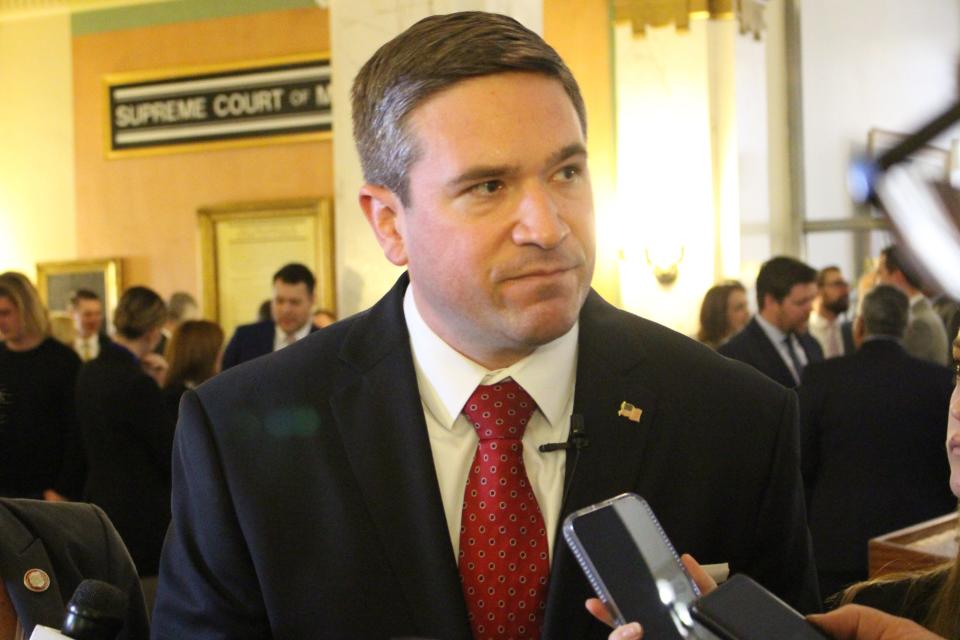
In the letter, Bailey warned the board not to revise the policy based on "incorrect guidance" from the USDA and said his office — as well as other Republican state attorneys general — have been fighting the change in court. Republican lawmakers have also voiced strong opposition.
Bailey accused President Joe Biden of forcing districts to "acquiesce to a radical sexual ideology" in order to feed students, using tactics of fear and intimidation and of making children pawns in a "wider culture war."
In conclusion, Bailey wrote he was ready to take action if needed to protect Missouri citizens from edicts "with no basis in the law."
Bailey sent the letter to media outlets at 5 p.m. and Lathan said she was handed a copy minutes before the start of the meeting. Board member Kelly Byrne called for a short break so the letter could be read prior to any vote on the policy revision.
Following the break there was a lengthy discussion and then the 4-3 vote to postpone any decision about the policy revision indefinitely.

Board vice president Scott Crise — who supported making the policy revision a month ago — voted to table the vote Tuesday along with Byrne, Makoski and Maryam Mohammadkhani. The three voted against the revision in the Sept. 26 meeting.
Kincaid along with board members Judy Brunner and Shurita Thomas-Tate — who unsuccessfully attempted to make the revision last month — voted against postponing the vote Tuesday.
Following the meeting, Crise told the News-Leader he works to "understand both sides" of an issue and didn't want to rush a decision on the policy.
"I struggled when we got more information from the Attorney General," he said. "I just need more time to make the right decision."
Policy out of compliance with USDA
There was back-and-forth Tuesday about what the proposed policy revision meant and what, if anything, was at risk if the change was not made.
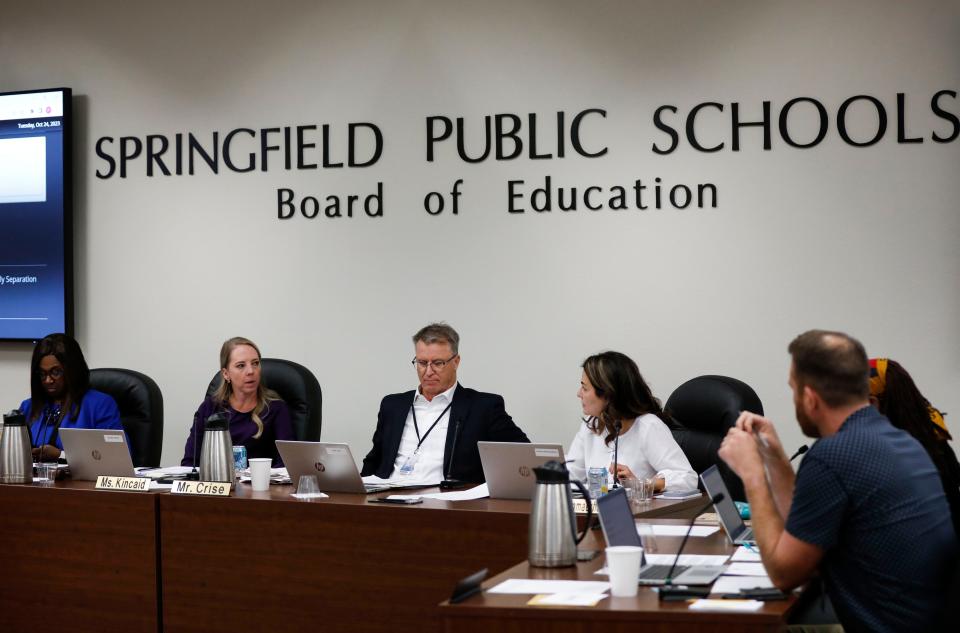
Byrne, Makoski and Mohammadkhani have repeatedly said they do not believe any federal funding tied to the free and reduced-price school lunch rate is in danger.
Brunner, Kincaid and Thomas-Tate said their support for making the change is about compliance and not wanting to risk the possibility of a USDA audit or funding loss.
"I believe we have a fiduciary responsibility to comply with regulations regardless of any specific political party that may be in power at the time," Brunner said.
Before voting to table, Crise described the vote as the most difficult issue he's faced on the board. He said there was "low risk" of an audit or funding loss.
Byrne said he reached out to the office of U.S. Sen. Eric Schmitt, among others, about the possibility of losing funds and was satisfied there was no risk involved.

"Now we find ourselves in the middle of apparently a disagreement between the state and federal government," he said, pointing to Bailey's letter. "... I don't see a need for us to rush and pass a change to a policy that was already in place. I think the proper action would be to do no action until the state and federal government figure this out."
The existing policy prohibits discrimination on the "basis of race, color, national origin, sex, disability, age or reprisal or retaliation for prior civil rights activity" in any program or activity conducted or funded by the USDA.
Mohammadkhani backed taking a wait-and-see approach and reiterated a suggestion she made last month that the board adopt an overarching policy statement that it will simply follow the law.
"Now it appears to me that the validity of the USDA edict as law is in question and assuming that if it were law, it can be changed and it can be revised so I see it as being much more efficient to not get bogged down chasing laws with district-level policies and spend our policy currency on what directly affects our classroom," she said.
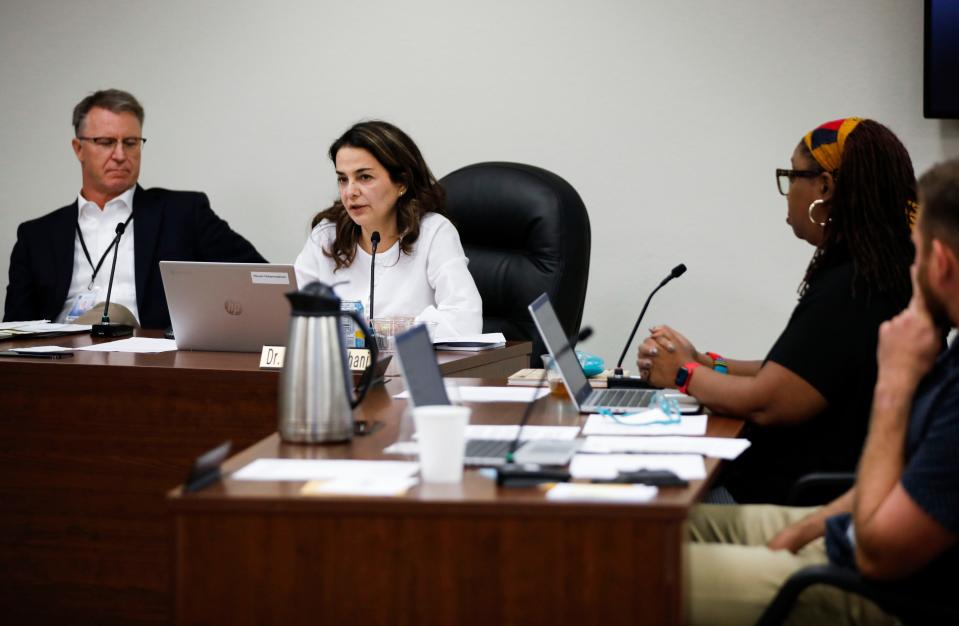
Mohammadkhani said she voted against the revision last month in an effort to "stave off divisive policies that would indeed polarize the community, that would overstep the parents and that would ultimately harm our students."
The Missouri School Boards' Association notified districts including Springfield about the policy change required by the USDA.
Mohammadkhani urged SPS to share Bailey's letter with the MSBA.
"That begs the question: How and why did MSBA advance on this? They essentially put the cart ahead of the horse. I am beginning to wonder if they're being coerced and they're taking something that is questionable as law and adopting it as policy to sidestep the legality of the policy. Who is doing this?"
"More partisan in our decision-making'
This is the second time this year that the SPS board has opted not to vote on an issue related to gender identity and sexual orientation.
Parents and advocates repeatedly asked the board to make a statement of support for LGBTQ students and staff for more than a year.
This summer when Thomas-Tate made a motion in favor of making the largely symbolic gesture, it died for lack of a second.
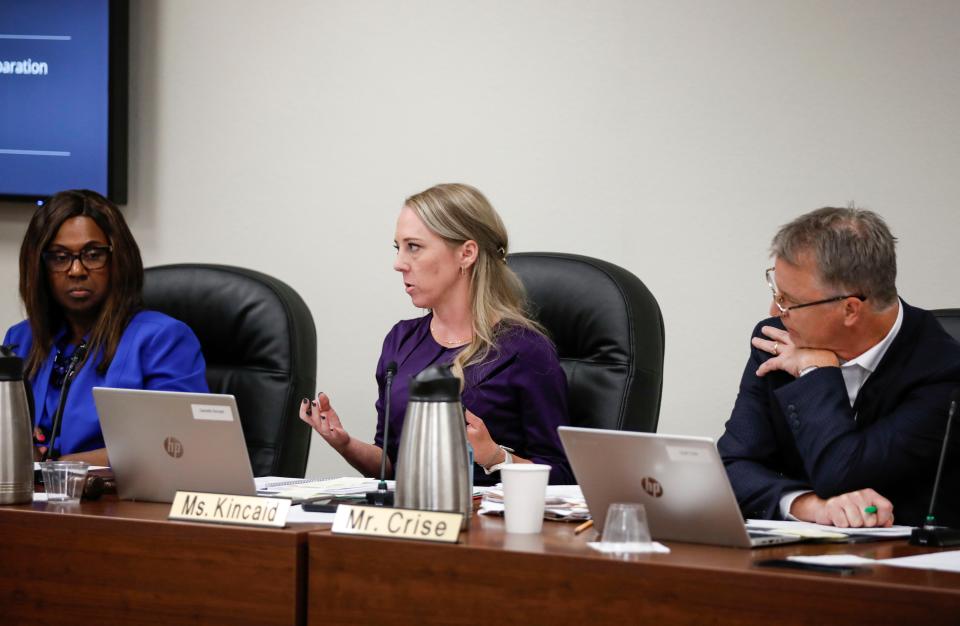
On Tuesday, Thomas-Tate said the governing body of the district is required by law to be non-partisan.
"I have been really dismayed at the level of politics that are continuously being pushed by the school board and we have become more and more partisan in our decision-making and it is disturbing," she said.
She objected to suggestions that "it is going to harm our children to add this language to this policy."
"We are focusing on this policy because it has been made a political issue rather than a policy issue that deals with feeding our students," she said.
Byrne said certain policy revision requests — including a recent one to change "his or her" pronouns and "replacing with their" — is evidence of politics and "playing games somewhere in Jefferson City or Washington D.C."
"That sure is a signal to me about what all of this is about," he said.
More: Springfield school board will fill 3 seats in April. How many incumbents will run again?
Mohammadkhani said her opposition to the school lunch policy change was not "rooted in politics."
"How this got politicized is by our board president bringing this back and choosing to spend more time on this and I need to emphasize that my vote has nothing to do with my opinions on sexual orientation and gender identity," she said.
Mohammadkhani questioned why policy AC — and another related to the USDA requirement — were placed back on the agenda since a quorum voted 3-3 on both a month ago.
"I'd like to get some clarity around when other board members in the future ask for a re-vote if a member was absent or if they feel that the circumstances have changed in some manner," she said.
She said revisiting the issue was a waste of time.
"What is in jeopardy is the quality of educations that students receive in our district and that parents expect because this board is choosing to focus on this conversation rather than on policies that directly impact our classrooms such as discipline, curriculum and above all the safety of our students," she said.
Thomas-Tate said making policy language more inclusive does not negatively impact students. Makoski disagreed.
"If we go down this road, it is not going to stop there," he said. "I cannot live with myself when another child kills themselves because adults (are) pushing this ideology and this language. It is not about being political."
Makoski added: "This has absolutely no place in this school system."
Claudette Riley covers education for the News-Leader. Email tips and story ideas to criley@news-leader.com.
This article originally appeared on Springfield News-Leader: SPS board puts off vote to revise school lunch discrimination policy

